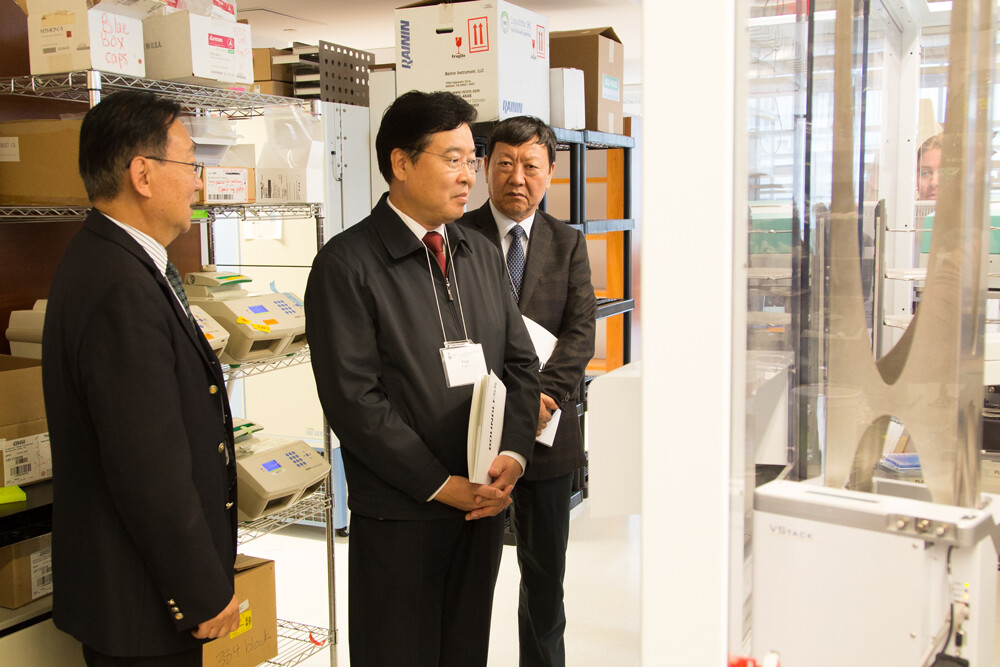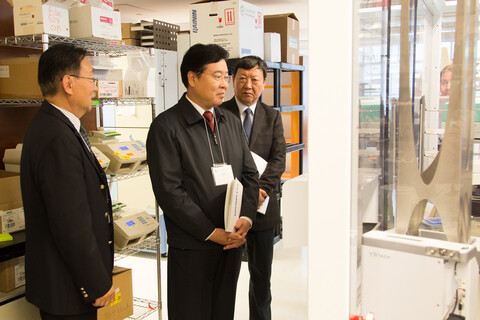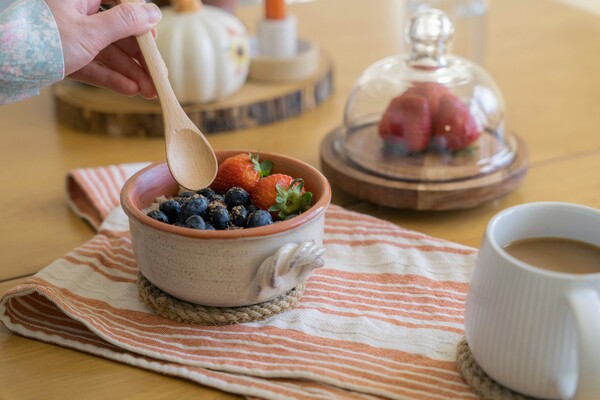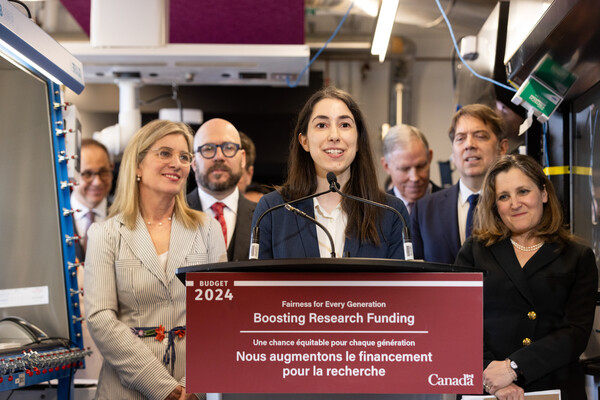Mobile Menu
- Education
- Research
-
Students
- High School Outreach
- Undergraduate & Beyond: Community of Support
- Current Students
- Faculty & Staff
- Alumni
- News & Events
- Giving
- About

Erin Howe

Fang Li, the Consul General of the People’s Republic of China in Toronto, visited the Terrence Donnelly Centre for Cellular and Biomolecular Research on October 17 to see how its scientists honour Dr. Norman Bethune’s legacy through their collaborations with labs at leading universities in China and around the world.
This year, U of T Medicine has been celebrating Bethune, who died 75 years ago and is one of the Faculty’s most famous graduates. He is best known as a wartime surgeon. While enrolled at U of T, he interrupted his studies to serve in the First World War. His wartime experience convinced him of the need to transport blood to the frontlines rather than the patient to a hospital. This would lead him to invent an early MASH-like unit – a vehicle with a small refrigerator – during the Spanish Civil War, where he offered his services to the Republican government. He also worked during the Second Sino-Japanese War training people with little schooling to become para-medicals or “barefoot doctors.” While in China, Bethune died of septicemia in a Chinese mountain village in 1939 at the age of 49. His work became famous when Mao penned his essay, “In Memory of Norman Bethune,” which became mandatory reading for Chinese school children.
In addition to his wartime service, Bethune is also remembered as a respected thoracic surgeon who patented several medical instruments, including the “Bethune Rib Shears,” which are still in use today.
The visit by the Consul General was another opportunity for U of T Medicine to strengthen it ties with China. Catharine Whiteside, Dean of the Faculty of Medicine, noted Bethune’s commitment to global impact.
“That calling is very much alive in China and in Canada today. We see it in many partnerships between our two countries and we see it in the remarkable collaborations between scientists in the leading universities in China and here in the Faculty of Medicine,” said Whiteside. “Together, our researchers are redefining what is possible in medicine and human health and leading the world toward a bold and exciting future.”
After a tour of the labs, the Consul General and several other distinguished guests visited the new Bethune sculpture outside the Medical Sciences Building. The sculpture was unveiled earlier this year and is a reminder of Bethune’s legacy.

